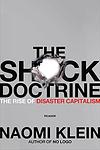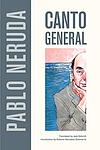The Greatest "Chile, Political" Books of All Time
Click to learn how this list is calculated.
This list represents a comprehensive and trusted collection of the greatest books. Developed through a specialized algorithm, it brings together 300 'best of' book lists to form a definitive guide to the world's most acclaimed books. For those interested in how these books are chosen, additional details can be found on the rankings page.
Genres
The "Chile" category in books encompasses a diverse range of literature connected to the South American country known for its long, narrow strip of land that stretches between the Andes mountains and the Pacific Ocean. This genre includes works by Chilean authors, historical accounts, cultural studies, travel guides, and political analysis. It covers a variety of subjects such as the nation's rich literary tradition, with Nobel laureates like Pablo Neruda and Gabriela Mistral; the tumultuous political landscape marked by the dictatorship of Augusto Pinochet; the unique geography and biodiversity; and the vibrant indigenous Mapuche heritage. Books in this category offer readers insights into the soul of Chile, from its poetic landscapes and urban dynamics to its complex social and political fabric, providing a multifaceted exploration of Chilean identity, resilience, and creativity.
The "Political" category of books encompasses works that explore the theory, practice, and history of government and politics. These books may cover topics such as political ideologies, political systems, political institutions, political movements, and political leaders. They may also examine the relationship between politics and other areas of society, such as economics, culture, and international relations. Political books can be both informative and thought-provoking, offering readers insights into the complexities of the political world and the challenges of governing in a democratic society.
Countries
Date Range
Reading Statistics
Click the button below to see how many of these books you've read!
Download
If you're interested in downloading this list as a CSV file for use in a spreadsheet application, you can easily do so by clicking the button below. Please note that to ensure a manageable file size and faster download, the CSV will include details for only the first 500 books.
Download-
1. The Shock Doctrine: The Rise of Disaster Capitalism by Naomi Klein
This book explores the concept of "disaster capitalism", the idea that global capitalism thrives on disaster and chaos. The author argues that free market policies are often pushed through while countries are reeling from wars, natural disasters, or economic crises. She provides a historical analysis of these events, from Chile in the 1970s, to Russia in the 1990s, to the war in Iraq, demonstrating how governments and corporations exploit these periods of shock to implement economic reforms that would otherwise be rejected.
-
2. Canto General by Pablo Neruda
"Canto General" is an epic poem that delves into the rich and tumultuous history, culture, and nature of Latin America. Through its lyrical and powerful verses, the work explores the struggles and identities of the continent's people, spanning from the ancient civilizations to the political upheavals of the 20th century. The poet weaves a tapestry of images and emotions that celebrate the beauty of the land while also critiquing the forces of oppression and colonialism. This sweeping poetic narrative serves as both a homage to the resilience of the human spirit and a call to action for justice and liberation.
-
3. Distant Star by Roberto Bolaño
"Distant Star" is a chilling novel set in Chile following the 1973 coup that overthrew Salvador Allende. The story focuses on a character who uses his position as a member of the Chilean Air Force to commit heinous acts of violence. His fascination with poetry and aerial acrobatics is interwoven with his terrifying actions, creating a disconcerting contrast. The narrative explores the horrific realities of political upheaval, the fine line between art and brutality, and the long-lasting effects of trauma.
-
4. A Brief History Of Neoliberalism by David Harvey
This book provides a critical examination of neoliberalism, tracing its origins and development from the late 20th century to its pervasive influence on global economics and politics. The author argues that neoliberalism, a doctrine advocating for free markets, deregulation, and reduction in government spending, has concentrated wealth and power in the hands of a few, leading to increased social inequality and environmental degradation. Through a detailed analysis of various countries' experiences, the book highlights the consequences of neoliberal policies and calls for a reevaluation of the current economic paradigm to address its shortcomings and create a more equitable and sustainable future.
Reading Statistics
Click the button below to see how many of these books you've read!
Download
If you're interested in downloading this list as a CSV file for use in a spreadsheet application, you can easily do so by clicking the button below. Please note that to ensure a manageable file size and faster download, the CSV will include details for only the first 500 books.
Download


